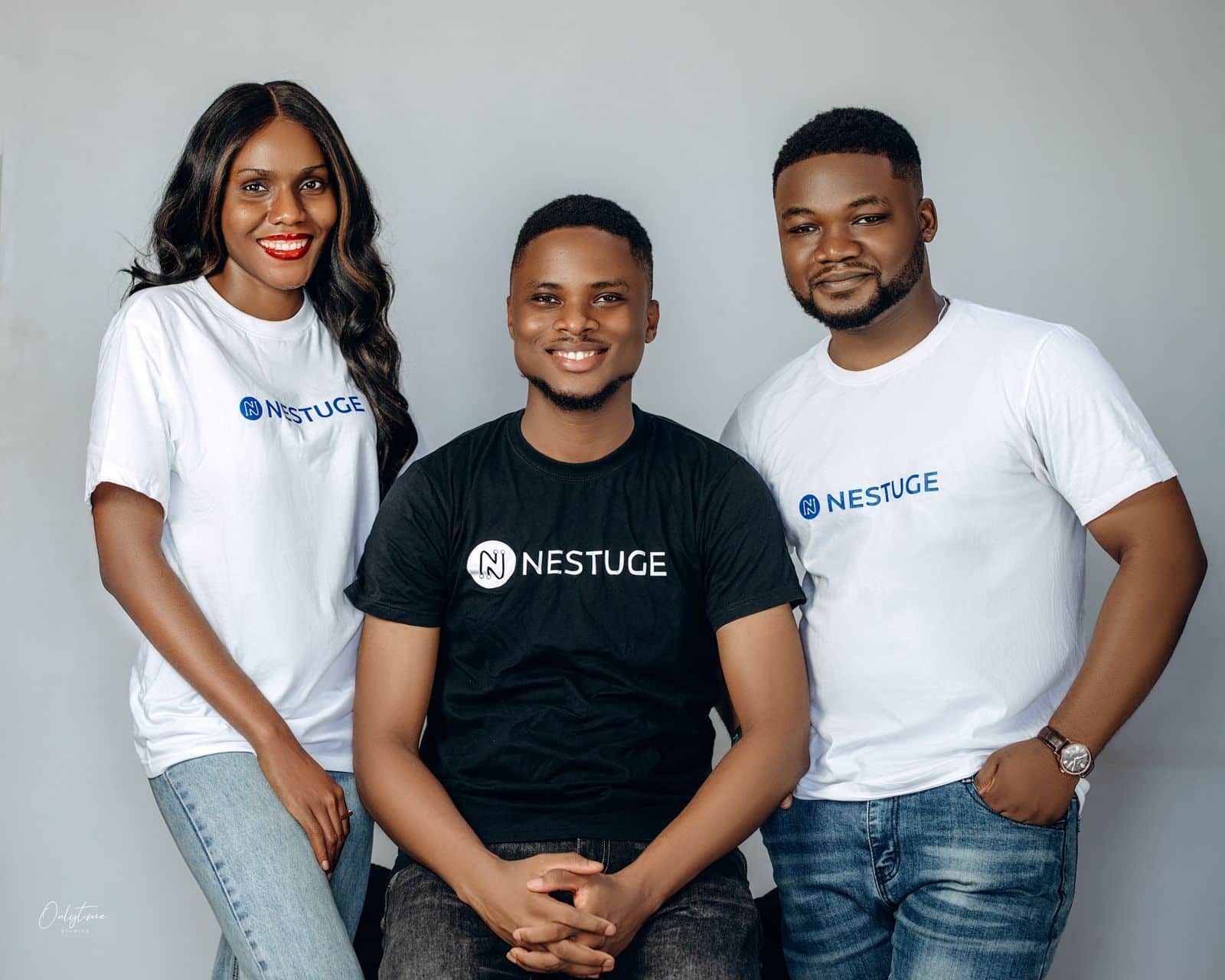Shortly after stepping down from Uber’s board, Travis Kalanick set out to disrupt another sector — restaurants — with Cloud Kitchens.
Thousands of miles away in Nigeria, Henry Nneji found inspiration in this business model for what would later become FoodCourt.
His initial foray into startups after finishing university in the UK and returning to Nigeria was Fashion Map, which ironically was meant to be the Uber for tailors.
“On the team, I was the COO, and I handled most of the product development. I would say that it was definitely very impactful because it got me, first of all, interested in technology. It got me interested in consumer behaviour and user experiences. And, I would definitely say that it was pivotal to building FoodCourt as well,” Nneji tells Techpoint Africa.
The business was short-lived, but as he pondered his next move, he found an article about Cloud Kitchens. As a teenager, Nneji witnessed his mother manage a Chicken Republic franchise. However, shortly after opening her doors, a road construction project began outside the premises.
“This was around the time when food delivery was still growing. I think Jumia Foods had just entered the market and didn’t have most of these restaurants on their platforms,” Nneji recalls.
“At the time, there was zero online presence for the business, and just because of that little roadblock, we saw foot traffic go from hundreds of people a day to almost zero. Eventually, we had to just shut down the business based on that,” he adds.
At the time, he had no way of knowing he would start a food business, but as he studied the cloud kitchen business model, the idea of starting a food business grew increasingly appealing. Initially, Nneji planned to replicate the Cloud Kitchens model in Nigeria, but he quickly abandoned the idea.
“When we spoke to Nigerian businesses about this, they were really excited about the solution, but as they got more comfortable opening up to us, we got to realise that a lot of them were saying things like, ‘Okay, I think it’s really exciting. I would definitely key into it, but after like a year of building, I would rather move out and open my own space.’”
With this realisation, he and his co-founders chose the virtual restaurant model, launching FoodCourt in 2021.
FoodCourt’s business model
Unlike the food aggregator model, where platforms list multiple restaurants and facilitate deliveries, FoodCourt operates a full-stack virtual restaurant model, managing its own brands and delivery services.
FoodCourt’s brands — about 15 of them — are fully owned and managed by the company across two locations in Lagos, Nigeria. When it first started, restaurants were launched based on Nigerian food staples. Now armed with data on consumer preferences, it launches restaurant brands in response to customer demand.
From its location in Lekki, it prepares the base for its meals, which ensures consistent quality and uniform taste.
When the business launched, food delivery aggregators in Nigeria were notorious for poor service. Unwilling to have the newly launched business suffer the same fate as the restaurants on these platforms, it decided to build an app and handle deliveries in-house.
That decision has been slightly modified. Although FoodCourt still handles some deliveries in-house, it was listed on Chowdeck in July 2024. While the move might seem contradictory, Nneji explains that it has been largely positive. The company plans to get listed on more food aggregators in the coming year.
On average, FoodCourt handles 30,000 orders a month; Chowdeck reportedly does 40,000 a day, but Nneji is unfazed. According to FoodCourt, its average order value of ₦15,000 is three times higher than that of the average food aggregator in Nigeria. Additionally, its business model does not rely on commissions, allowing it to keep most of its revenue.
Challenges of pioneering a new business model
FoodCourt’s journey has been marked by challenges. In its early days, it tried subletting underutilised kitchen spaces in existing restaurants. Most establishments rejected their proposal, and while one eventually agreed, the arrangement quickly proved unsustainable.
Within a month of using the location, FoodCourt’s order volumes had surpassed those of the host restaurant. Tensions arose with the host restaurant often refusing to handle maintenance in the kitchen.
Frustrated, they began the search for a new location. With their last experience, they knew they were better off with a location they had some control over.
Prices for real estate in Lagos are notoriously expensive, and with their business requirements, it was even harder to find an appropriate location. When they did, they were constrained by available capital until they raised an angel round from Rob Solomon, former CEO and Chairman of GoFundMe.
Those funds went into renting and renovating the new location, but within a month, they were back on the search trail. Due to complaints from a neighbour, the landlord requested that they vacate the premises. Fortunately, a partial rent refund softened the blow.
An intervention from a co-founder’s father got them a good location, which they used for about a year before more complaints from neighbours. Today, its operations run from two locations, one of which is a 2,000-square-foot location in Lekki.
Getting a great location is not the only challenge the three-year-old startup has battled. Like other food businesses, it has struggled with the effects of Nigeria’s food inflation. Prices of staples such as tomatoes, onions, and rice have risen more than 150%.
When the business launched in 2021, it sold a serving of jollof rice for ₦700. Today, it sells the same portion for ₦3,750 and it initially tried to change ingredients to deal with the rising costs.
“We actually tried changing some of our ingredients, and we had backlash from customers telling us to make it more expensive. I think one thing that really helped us around the time was that when we introduced our service to customers, we never introduced it as the cheapest. What we really laid emphasis on was the quality of the food and the quality of the service that we were giving the customers.”
While rising operational costs have led many Nigerian businesses to pursue backward integration, Nneji explains that FoodCourt has avoided investing in farms to stay focused on its core competencies.
Maintaining operational excellence and financial sustainability

FoodCourt’s success is driven by a focus on operational excellence and financial efficiency. Its model inherently allows it to use the same resources (staff and location) to serve all its restaurants, reducing expenses and waste. In September 2024, it laid off 100 employees following operational changes aimed at improving efficiency.
It has also been forced to be capital-efficient. Its acceptance into Y Combinator in 2022 came just before most VCs scaled back on new investments, with some investors even reducing commitments to the startup. Those circumstances have helped it achieve profitability in 2024.
“It’s a big blessing to me because it got us to be very prudent about spending. It got us to be very strategic about how we use our money, and it got us to also have a very, very deep look at our unit economics and our contribution margins just to make sure that we’re actually operating a sustainable business,” Nneji shares.
What’s next for FoodCourt?

Having operated exclusively in Lagos since its launch, FoodCourt is now setting up a new facility in Abuja, Nigeria’s capital. But what comes after Abuja?
“When it comes to picking locations, for us, it’s more about whether the market is ready for the solution that we’re bringing because we know that every single person on the planet eats, but at the same time, it’s like, is smartphone penetration high? Are people ordering online? What does introducing ourselves in this city mean? And how much are we going to have to push ourselves to penetrate that market?” Nneji shares.
With the majority of Nigeria’s food delivery revenues coming from Lagos, the startup is not keen on expanding into other cities. Instead, it plans to expand to other African capitals in the new year.
Recently, it launched a restaurant for customers who want more affordable meals. While that would lower its average order value, the startup sees it as a fair trade off that brings in more customers.
Food delivery startups have long wrestled with the profitability issue, and while Nneji shares that he has no way of knowing whether the industry would ever be profitable enough to wean itself off VC investments, he’s confident that FoodCourt is on the right trajectory.












